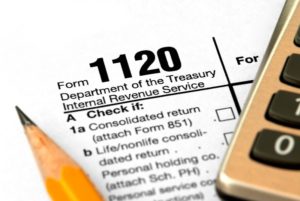2010 Tax Relief Act creates a 100% writeoff for heavy SUVs used entirely for business: HISTORY REPEATS ITSELF
[vc_row][vc_column][vc_column_text]OLD RULE:
A calendar year taxpayer bought a $50,000 heavy SUV in June of 2010 and used it 100% for business in 2010. It may write off $40,000 of the cost of the vehicle on its 2010 return, as follows:
… $25,000 expensing deduction (Sec. 179(b)(6) Limit, see below under “History”), plus
… $12,500 of bonus first year depreciation ($50,000 − $25,000 of expensing × .50 = $12,500), plus
… $2,500 of regular first-year depreciation ($50,000 − $25,000 of expensing − $12,500 bonus depreciation × .20 = $2,500.
NEW Rule:
Now 100% first-year writeoffs for heavy SUVs. Under the 2010 Tax Relief Act, the bonus first-year depreciation percentage is 100% (instead of 50%) for bonus-depreciation-eligible “qualified property” that is generally (1) placed in service after Sept. 8, 2010 and before Jan. 1, 2012, and (2) acquired by the taxpayer after Sept. 8, 2010 and before Jan. 1, 2012. Qualified property includes property to which MACRS applies with a recovery period of 20 years or less. Autos and trucks are 5-year MACRS property and thus qualify for bonus depreciation (assuming business use exceeds 50% of total use). (Code Sec. 168(k)(2)(D))
Thus, a taxpayer that buys and places in service a new heavy SUV after Sept. 8, 2010 and before Jan. 1, 2012, and uses it 100% for business, may write off its entire cost in the placed-in-service year. There is no specific rule barring this result for heavy SUVs. Thus, if the taxpayer in our illustration above had bought the heavy SUV in, say, October of 2010, it could write off the full $50,000 cost of the vehicle on its 2010 return.
History Repeats Itself
The old George Bush Loophole that, for about 2 years, allowed people to write-off 100% of the cost of their Hummer used for business…that was ended 10/22/2004:
Heavy SUVs—those with a GVW rating of more than 6,000 pounds—are exempt from the luxury auto dollar caps because they fall outside of the definition of a passenger auto in Code Sec. 280F(d)(5).. To deal with this “SUV tax loophole,” the American Jobs Creation Act of 2004 (Public Law 108-357) imposed a limit on the expensing of heavy SUVs. Under Code Sec. 179(b)(6), not more than $25,000 of the cost of a heavy SUV placed in service after Oct. 22, 2004 may be expensed under Code Sec. 179. These rules apply, with some exceptions, to SUVs rated at 14,000 pounds GVW or less.
If you use your SUV less than 100%, all these rules apply based on the percentage of business use for the SUV. So, if based on mileage during the year, you use an SUV 80% for business and 20% for personal use, you would apply these rules to the 80% business use portion of the costs of the SUV. Below 50% business use, no Sec. 179 deduction is allowed.
Political comment: On this issue, Presidents Obama and Bush came to the same conclusion, which upset many people who can’t afford heavy SUVs and write them off in the 1st year as a tax deduction.
Feel free to call or write us if you need assistance with this issue.[/vc_column_text][/vc_column][/vc_row]
Will New Corporate Tax Plans Hurt the U.S. in the End?
The winds of change are blowing when it comes to taxes and corporate taxes are no exception. President Trump and the House are both ready to lower the corporate tax rate in an effort to create a more business friendly environment for U.S. companies here in the states. Currently, the corporate tax system is…
Don’t Get Scammed This Tax Season
Don’t Get Scammed This Tax Season Thousands of people are conned out of money every tax season by scammers. The problem with these scams is that they sound very convincing and if you don’t know what to look for, then you could easily be taken advantage of by one of these con artists. There’s a…
Identify Your Firm’s Future Leaders
Identify your firm’s future leaders; leaders are increasingly being asked to identify the emerging leaders in their organizations. To help in this process, we recently examined 360-degree performance appraisal data on more than 120 emerging leaders from 18 North American companies to see what leadership competencies ranked as important in selecting internal associates for…
Key Elements to Successful Teamwork
Key Elements to Successful Teamwork At our recent leadership retreat our team focused on two topics: Trust and accountability. After reading several books and having lively discussions for two days it became clear that a firm must have trust in order to hold people accountable. This is not a new or difficult concept; however, becoming…




